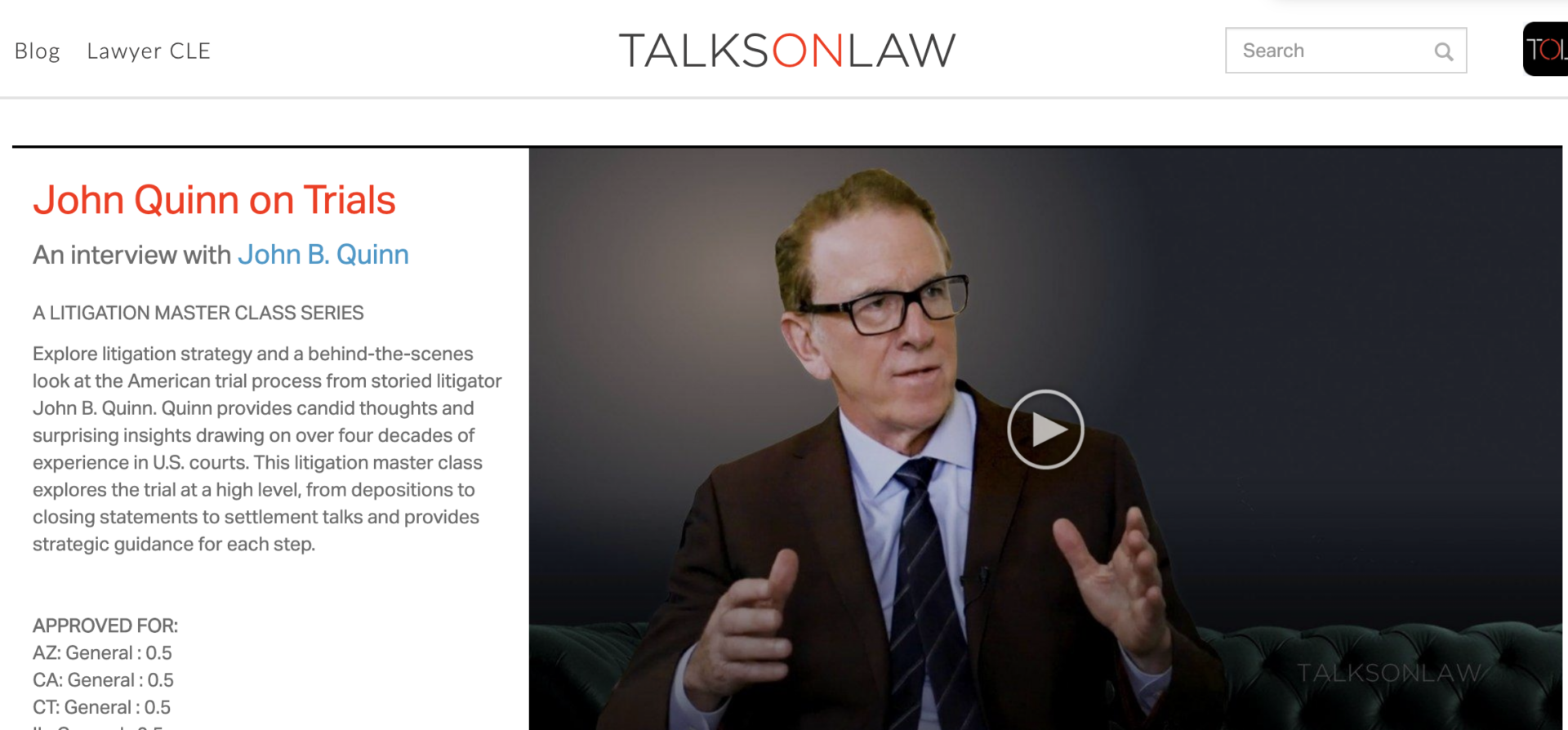Talks on Law: John Quinn on Trials
This is an excellent video of legendary trial lawyer John Quinn discussing trial strategy, presented by TalksOnLaw.com. Even in this short (20 minute) video, it is abundantly clear that Quinn is an amazing teacher--clear, concise, and compelling; it is no wonder juries respond to him.
With the wisdom of a grizzled military tactician, Quinn emphasizes that trial strategy begins early with choosing and setting the battleground--what he terms finding the "high ground." That's not to say his approach is static, but he's always focused on ensuring that he is in the best position to present the most persuasive, credible case.
Quinn says, "The side that figures out first what will ultimately matter in a litigation, wins."
In the video, Quinn explains how that high ground can be achieved through various procedural mechanisms, the development of evidence, and refined legal arguments. He notes that using those tools can allow an advocate to interrupt the typical "choreography" of discovery by, for example, enabling an early, snap deposition before the opposition has located the high ground, whereby key admissions may be elicited.
Turning away from the militaristic view of litigation, Quinn presents an enlightened view of cross examination, explaining that cross examination needn't--and often shouldn't--be "hostile." Quinn recognizes that juries sympathize with witnesses, who are typically out of their element. Aggressive cross examiners may be viewed negatively for capitalizing on what is perceived as a home court advantage.
Most insightfully, Quinn disposes with the notion that cases are decided based on the trial lawyer's likability. Quinn, instead, convincingly tells how it is the trial lawyer's credibility that drives the outcome. He recognizes that juries come to court believing there is "a truth"--an objectively correct answer--and based on the lawyers' presentations, the jurors will decide who is trying to reveal that truth and who is trying to obfuscate the truth.
Quinn returns to military imagery when he describes the purpose of closing arguments. He believes most jurors have, at that stage, long since decided the key issues. Therefore, the role of closing argument is to "arm" those jurors who have adopted your position with the "ammunition" they need to convince fellow jurors of that position during deliberations.
I highly recommend watching the full video and exploring the many other videos available from TalksOnLaw.
The video is available here:
https://www.talksonlaw.com/talks/john-quinn-on-trials
And a condensed version is available here:
https://www.talksonlaw.com/briefs/litigation-strategy-a-key-to-winning
